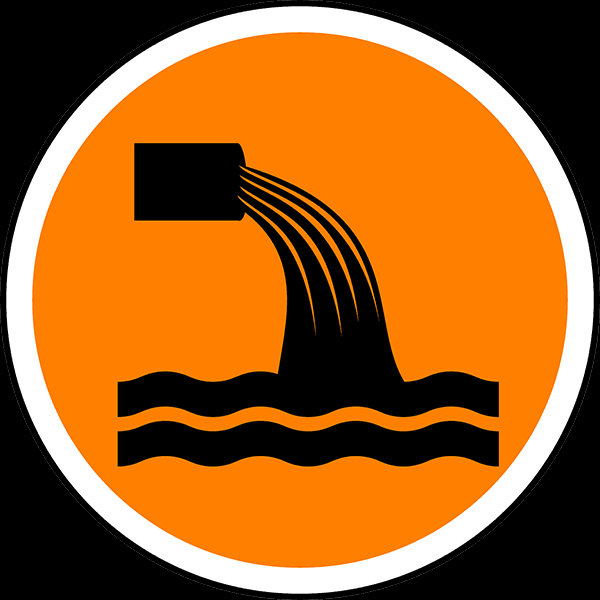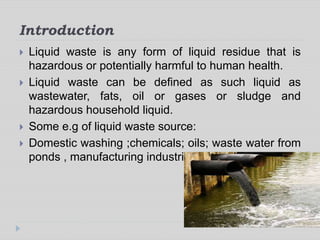The Of Reclaim Waste
The Of Reclaim Waste
Blog Article
A Biased View of Reclaim Waste
Table of ContentsSome Known Details About Reclaim Waste Things about Reclaim WasteReclaim Waste - An OverviewReclaim Waste Can Be Fun For EveryoneUnknown Facts About Reclaim Waste
Explore the types, incidents, and forms of fluid waste. Domestic sewer waste refers to the waste and items from a household sewage-disposal tank. This sort of waste is developed by people in houses, institutions, and various other buildings. This only consists of septic tanks that have a drainpipe field. The correct administration and disposal of domestic sewer waste need liquid waste to be moved to a sewer therapy plant where the appropriate methods and tools are related to detoxify and deal with waste.
Commercial waste typically consists of potential dangers, such as combustible materials or a mix of fluid and strong waste products, and needs an extra advanced and in-depth disposal procedure. The disposal of commercial waste typically entails the filtration of waste prior to transport to make certain secure and proper disposal. Industrial waste is produced from by-products and overflow of commercial processes and manufacturing.
This sort of waste can not make use of the same sewage management transportation or processes as septic or industrial liquids. The industrial waste administration process needs the assessment and screening of fluid waste prior to it undertakes the disposal procedure (liquid waste removal). Overflow waste is the fluid waste that comes from overflow and excess stormwater in highly populated areas or cities
Drainage waste can create contamination and flooding otherwise dealt with correctly. Discover a lot more concerning drain cleaning and waste monitoring. Making sure correct waste administration can prevent calamities and lower ecological injury. Both individuals in property settings and specialists in commercial or manufacturing industries can gain from recognizing the processes and guidelines of liquid waste management.
Reclaim Waste Fundamentals Explained
Contact PROS Providers today to learn concerning our waste monitoring and disposal services and the appropriate ways to take care of the liquid waste you create.
(https://reclaimwaste1.wordpress.com/2024/11/12/efficient-liquid-waste-disposal-in-melbourne-reclaim-wastes-expert-solutions/)This so-called 'wastewater' is not just a crucial source but, after therapy, will certainly be launched to our land, rivers or the ocean. Made use of water from commodes, showers, baths, kitchen sinks, laundries and industrial procedures is known as wastewater.

water utilized to cool equipment or tidy plant and tools). Stormwater, a form of wastewater, is drainage that flows from agricultural and city areas such as roofs, parks, gardens, roadways, courses and rain gutters right into stormwater drains pipes, after rain. Stormwater flows untreated directly to regional creeks or rivers, ultimately reaching the ocean.
Not known Details About Reclaim Waste
In Queensland, a lot of wastewater is treated at sewage treatment plants. Wastewater is carried from residential or industrial sites via a system of sewage systems and pump terminals, called sewerage reticulation, to a sewer treatment plant. Neighborhood governments construct, keep and run most sewage therapy plants. Operators are accredited under the Environmental Protection Act 1994 to release treated wastewater at an appropriate environmental criterion right into waterways.
The Department of Natural Resources recommends city governments about handling, operating and preserving sewerage systems and treatment plants. In a fantastic read unsewered locations, neighborhood federal governments might call for homeowners to install private or family sewage therapy systems to treat residential wastewater from commodes, kitchen areas, washrooms and washings. The Department of Natural Resources authorises making use of home systems when they are proven to be effective.
The majority of stormwater gets no therapy. In some brand-new class, therapy of some stormwater to remove clutter, sand and crushed rock has actually begun making use of gross contaminant traps. Wastewater therapy happens in 4 stages: Removes strong matter. Bigger solids, such as plastics and other things incorrectly discharged to sewage systems, are gotten rid of when wastewater is gone through screens.
Wastewater after that flows into huge tanks where solids clear up and are gotten rid of as sludge. Oil and residue are skimmed from the surface area. Uses little living organisms referred to as micro-organisms to damage down and remove staying liquified wastes and fine bits. Micro-organisms and wastes are included in the sludge. Eliminates nitrogen and phosphorus nutrients that can cause algal flowers in our rivers and threaten water life.
Reclaim Waste Fundamentals Explained
Nutrient elimination is not offered at all sewage treatment plants because it requires expensive specialist equipment. Clear fluid effluent generated after therapy may still include disease-causing micro-organisms - liquid waste removal.

This normally implies wastewater has to be dealt with or pollutants removed prior to it can be released to waterways. The majority of wastewater moves into the sewage system. Under the Act, city governments administer authorizations and licences for eco appropriate activities (Periods) including wastewater launches that may have a local influence. The department carries out approvals and permits to Ages involving wastewater launches that might have a local or statewide effect.
Our Reclaim Waste Statements
Surveillance gives valid details about water quality and can confirm that licence conditions are being met. The information obtained through monitoring offers the basis for making water quality decisions.
Report this page